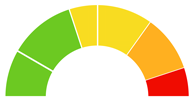Description: UniFi OS 3.1 introduces a misconfiguration on consoles running UniFi Network that allows users on a local network to access MongoDB. Applicable Cloud Keys that are both (1) running UniFi OS 3.1 and (2) hosting the UniFi Network application. “Applicable Cloud Keys” include the following: Cloud Key Gen2 and Cloud Key Gen2 Plus.
CVE-2023-31997
CVSS Score: 9 (CRITICAL)
EPSS Score: 0.04%
Risk Score: 6.3 (HIGH)
Risk Score based on CVSS score and EPSS. This score is for reference purposes and is not internationally recognized.


Mitre ATT&CK Technical v15.1
T1053.002 – At
Technical Analysis & Mitigation Measures
1. Technical Attack Analysis:
The vulnerability described in CVE-2023-31997 relates to a misconfiguration in UniFi OS 3.1, allowing unauthorized users on the local network to access MongoDB databases.
Attack Techniques:
– T1053.002 – Scheduled Task/Job (Cron) : Attackers can exploit this misconfiguration to schedule unauthorized tasks or jobs that could lead to data exfiltration, data manipulation, or even the deployment of malicious payloads. This could allow an attacker to execute arbitrary commands or scripts if they gain access to the underlying MongoDB database.
Potential Impacts if Exploited:
– Data Breach : Sensitive data stored in the MongoDB database could be exposed or manipulated by unauthorized users.
– System Compromise : Attackers could execute commands that negatively affect the integrity and availability of the UniFi Network application.
– Network Integrity : Compromise of the application could lead to a broader network attack, potentially affecting other connected devices and services.
– Reputation Damage : If the vulnerability leads to a significant data breach or service disruption, it could harm the organization’s reputation and trust among customers.
2. Mitigation Measures:
To mitigate the risks associated with this vulnerability, the following specific steps should be taken:
– Strengthen Security Configurations :
– Enable multi-factor authentication (MFA) for accessing the UniFi Network application.
– Restrict permissions for users accessing the MongoDB database, allowing only necessary users with predefined roles.
– Ensure that the MongoDB instance is not exposed to the local network unless absolutely necessary.
– Utilize Specific Tools or Security Software :
– Deploy intrusion detection systems (IDS) to monitor and alert on abnormal access patterns to the MongoDB instance.
– Use endpoint protection tools to scan for vulnerabilities and malicious activities on Cloud Keys and associated devices.
– Regularly update antivirus definitions and conduct scans to ensure no malicious software is present.
– Implement Monitoring and Reporting Practices :
– Enable logging of all access to the MongoDB database and regularly review logs for unusual activity.
– Set up alerts for login attempts from unfamiliar devices or IP addresses.
– Conduct regular audits of user access and permissions for the UniFi Network application and MongoDB.
By implementing these measures, organizations can significantly reduce the risk associated with CVE-2023-31997 and enhance the overall security posture of their network.
The content above is generated by AI. Please review and consider carefully before applying!
Reference Links
Vendor - Produce - Version
Disclaimer
The content on this website is automatically sourced from external websites such as the National Vulnerability Database (NVD), GitHub, and other security-related sources. This content is for reference purposes only, and we are not responsible for the accuracy or integrity of the information linked or displayed from these sources.
